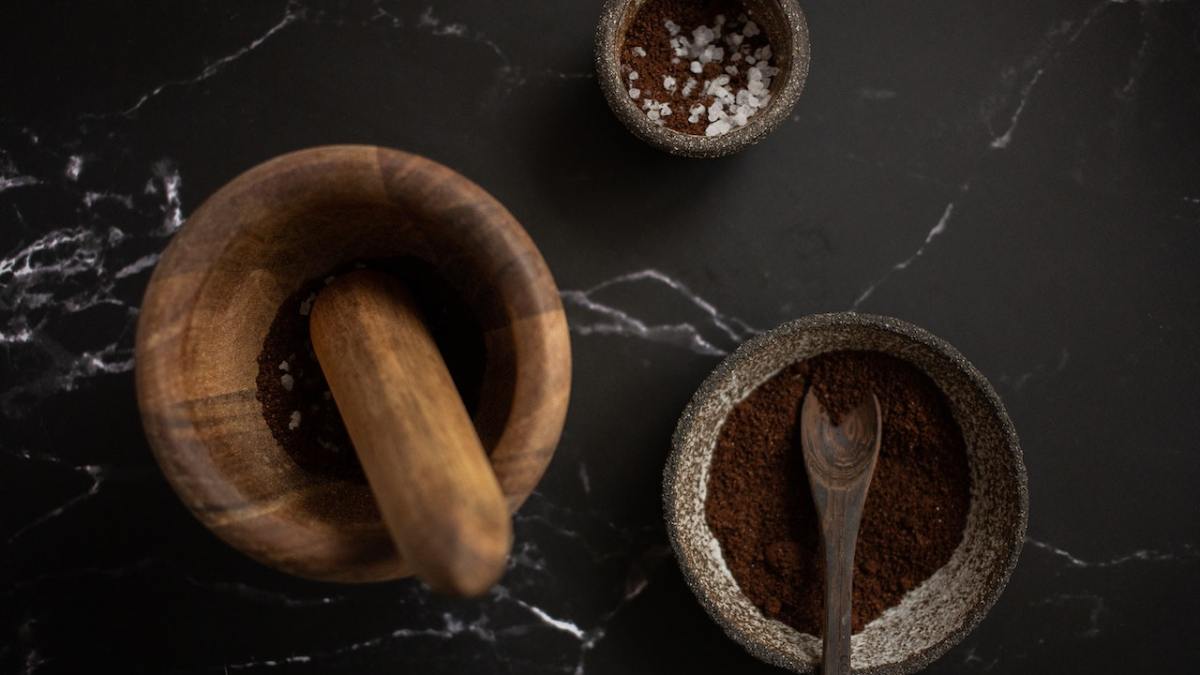When choosing the taste of a daily coffee drink every morning, there are those who prefer it dark without any additives, while others prefer it with a little cream or vegetable milk and sugar, and some may even taste it only soaked in ice cubes to make it a cool and refreshing drink.
In contrast, there is an uncommon school in the most popular drink that holds that the "magic addition" to a cup of coffee is simply a small handful of salt.
This idea, which may seem shocking to many people, has many supporters who consider that this simple change in ingredients can achieve an exceptional balance in the distinctive taste of the drink, in addition to a large number of other advantages that we review in this report.
A handful of salt makes a difference
Despite its strangeness and lack of adoption as a common additive to a dark drink, adding salt to coffee seems to remove some bitterness and highlight other flavors.
There is a scientific basis for this delicious positive effect of salt with coffee, which is that sodium chloride is highly effective in relieving bitterness in coffee and all kinds of different foods.
By softening bitterness, salt allows other flavors such as halva or umami and pungent taste to appear clearly.
A scientific study published in the journal "Science Alert" in this regard showed that salt is exceptionally effective in hiding bitterness, and when scientists mixed sweet and bitter flavors together, adding salt to the mixture made the mixture sweeter and less bitter.
Sodium chloride is highly effective in relieving the bitterness of coffee and some other foods (Shutterstock)
Circumventing the sense of taste
Taste buds in humans are complex and rich, characterizing 5 basic tastes: bitterness, saltiness, acidity, sweetness and umami.
Finding the right combination of these flavors determines the level of deliciousness of food, and bitterness is the worst and most unbearable taste for humans ever, and is found in a large proportion in coffee drink.
Many assume that caffeine is the compound responsible for coffee bitterness, but in reality, caffeine accounts for only 15% of coffee bitterness.
In contrast, chlorogenic acid lactones and penilidanes are compounds that give coffee its bitter taste, which are enhanced and become more prominent during the roasting process.
Although there are types of coffee beans that are inherently more bitter, coffee bitterness can result from preparation errors, such as using too much ground coffee with water, and excessive temperature when brewing coffee.
When coffee becomes more bitter than desired, salt comes to adjust the cuff, as the sodium ions in salt neutralize the bitter taste, which is why many add salt to fruits and sweets.
So if the coffee tastes bitter or overroasted, adding a little salt may help relieve this bitterness, as sodium has the ability to resist bitterness by inhibiting taste receptors that perceive bitterness on the tongue.
Minimum quantity
When you want to try adding salt to coffee, it is important to use the least amount and stir it well until it dissolves, and after the initial experiment, the amount can be gradually adjusted based on personal taste.
Adding a little salt to coffee helps relieve its bitterness (Al Jazeera)
It is essential to keep in mind that adding too much salt at once can overwhelm the flavors in coffee and make it taste completely unacceptable.
In addition, if a person has health conditions that require them to limit their overall salt intake, such as high blood pressure or kidney problems, it is important to keep this in mind.
In general, personal taste plays a big role in accepting the idea of adding salt to coffee, and some people may find that adding a small amount of salt to their coffee, even if it is added to sugar, enhances their enjoyment of the drink and enhances the taste of flavors. Experimenting with different flavor combinations is part of the fun of exploring coffee.

